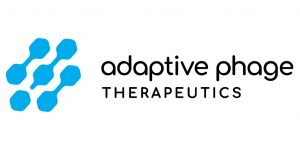
Richmond Stakeholders Lay Foundation for Thriving Life Sciences Ecosystem
By Alex Keown
June 6, 2023
| This article is part of our Capital Projects section, sponsored by ECBuild / EwingCole. Discover the latest real estate projects making an impact in the regions that we serve and learn more about the companies building them. Have a project that you want to share with our community? Get in touch! |
A high tide will float all ships. That can be especially true when it comes to forging a strong life sciences ecosystem and it’s a philosophy adopted by industry leaders aiming to bolster Richmond’s position as a strong southeastern hub of innovation.
Kipton Currier, Vice President of Operations at Activation Capital, said the region is teaming together so it can ultimately “punch above our weight” as a thriving ecosystem. Activation Capital is an innovation ecosystem development organization. Founded in 1992, Activation Capital is the Virginia biotechnology research authority. The organization provides financial capital and industry expertise to support life sciences entrepreneurs in Virginia. The organization’s mission is to promote scientific research, commercialization, business formation, and ecosystem development across the region.
Since its founding, Activation Capital has supported more than 483 companies with more than $50 million in financing. Currier said the organization is assessing key needs that will strengthen Richmond’s position as a life sciences microhub. They are determining spatial needs for labs and research & development space that will help drive growth in the area.
“There is so much potential here and we want to capitalize on that,” Currier said.
Since its formation, the commonwealth’s biotechnology authority developed a 34-acre biotechnology park in Richmond that includes the Virginia Division of Consolidated Laboratories, the non-profit United Network for Organ Sharing, the forensic science medical examiners building, as well as Virginia Commonwealth University’s Biotech One site.
Biotech One and Liver Center
Biotech One is home to multiple VCU office and labs, including the department of biomedical engineering, research and innovation and the VCU School of Pharmacy. Biotech One is also home to Respiratory Drug Delivery Online, an organization that provides online training and conferences, as well as aerosol testing equipment for pulmonary therapeutics.
VCU has become a cornerstone institute for Richmond’s life sciences community due to the depth of its research programs, explained Michael Mancini, Activation Capital’s newly appointed Vice President of Entrepreneurship & Ecosystem Development. Calling VCU “very life sciences heavy,” the university’s strengths lie in oncology, cardiovascular critical care and liver and metabolic diseases, Mancini said.
Last year, VCU received more than $100 million in support of a new facility focused on liver-related metabolic diseases. The new Stravitz-Sanyal Institute for Liver Disease and Metabolic Health is focused on developing therapies that can halt, prevent and even reverse liver disease. Liver disease is highly prevalent in the United States and is expected to become even more of an issue due to rising obesity rates. It often goes unnoticed until the only treatment option available is a liver transplant but that has numerous inherent risks. Liver disease is linked to other diseases, including heart disease, cancer, kidney failure, diabetes and Alzheimer’s disease.
The new liver institute will likely become a cornerstone institution in Richmond. The intellectual property developed at the institute could spawn new therapeutics as well as new companies.
“In the long run, I think liver and metabolic diseases will be what Richmond becomes associated with,” Mancini said.
In addition to the VCU site, Richmond is home to Capital One-backed 1717 Innovation Center. Housed in a century-old tobacco warehouse, the Innovation Center is the headquarters of Startup Virginia, a nonprofit high-growth business incubator and entrepreneurial hub.
A key catalyst for Richmond’s future was a 2022 investment from the federal government.
Build Back Better Grant
In 2022, the Richmond-Petersburg region of Virginia received more than $52 million through the Build Back Better Regional Challenge. The funds will support the alliance’s goal of scaling the region’s advanced pharmaceutical manufacturing and R&D cluster in order to address the national need for quality, affordable essential medicines.
The grant total of $52,942,702 will be further bolstered by an additional $13,339,919 of funding from private and public organizations, for a total investment of $77,792,402.
In 2020, a coalition of public and private entities from across the region partnered to form the Alliance for Building Better Medicine. In its first year, backed by seed funding from GO Virginia, the alliance fast-tracked development of an advanced pharmaceutical manufacturing cluster in central Virginia.
John Newby, chief executive officer at Virginia Bio, the statewide non-profit trade association for the life science industry, said the advanced pharmaceutical manufacturing cluster will support an area that is historically depressed and is in need of economic revival. He said the funds will ensure that no one is left behind as the area becomes a thriving microhub for the commonwealth’s life sciences industry.
“This is one of the largest grants awarded in this area. It will positively impact these communities and lift them economically. We won’t be leaving anyone behind,” Newby said. “This is about the people, the patients and the community.”
Outside of academia, Richmond has become a key hub for essential medicines. Companies like Phlow and Civica Rx, along with strategic partners Civica Rx, Virginia Commonwealth University’s Medicines for All Institute, and AMPAC Fine Chemicals partnered to ensure a steady supply of essential medicines outlined by the FDA that are currently in short supply. Some of the essential drugs include lidocaine, methadone, ketamine and others.
Two years ago, Civica Rx announced in it will invest $124.5 million to establish its first in-house pharmaceutical manufacturing operation in Petersburg. Civica planned to build a 120,000-square-foot state-of-the-art manufacturing facility adjacent to facilities operated by Phlow and AMPAC.
Additionally, Ceres Nanosciences opened a new 12,000-square-foot manufacturing facility in Prince William County’s Innovation Park.
While these have been critical for the development of the region’s life sciences ecosystems, there are some key issues that will have to be addressed.
Richmond’s Needs
While Richmond has a solid foundation as a life sciences microhub, Cullier and Mancini recognize several components Richmond needs in order to continue its growth trajectory. First, there is a significant need for additional wet lab space, Mancini said. Much like other regions where the life sciences thrive, wet lab space is in high demand. To meet the need, a new space with available wet lab space is currently under development in Richmond. Mancini said the new space is expected to open in 2025.
Building a strong pipeline of talent will also be critical for the region’s success, Cullier said. Activation Capital and other stakeholders are working with community colleges across the region to develop curriculum that will support future biomanufacturing positions.
Additionally, the city and region needs greater access to capital to finance early-stage innovation. There is also a need for experienced life sciences entrepreneurs who will take the risk to build companies based on innovations coming out of area universities.
Stakeholders see a bright future for Richmond and the surrounding area. With a solid foundation put in place, that vision for Richmond is becoming a reality.
“When you look at the life sciences (in Richmond) and how broad it is, a high tide will float all ships,” she said.










